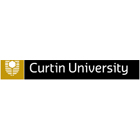Doctor of Sustainable Development
Doctor of Sustainable Development
Based on the UN Sustainable Development Goals, this innovative course is among the first of its kind. In this course, you will develop a critical understanding of the complex issues that lay at the frontier of sustainable development. You will understand sustainable development as a profoundly inter-disciplinary and trans-disciplinary endeavour,…
Categories
COURSE DESCRIPTION
Based on the UN Sustainable Development Goals, this innovative course is among the first of its kind.
In this course, you will develop a critical understanding of the complex issues that lay at the frontier of sustainable development. You will understand sustainable development as a profoundly inter-disciplinary and trans-disciplinary endeavour, involving professionals, policy developers and researchers on global and local scales.
The Doctor of Sustainable Development will comprise at least two-thirds research and four units of coursework. You will learn cognitive and technical skills relevant to sustainable development and use these skills to undertake a significant research project. Your research will be well designed and locally embedded to help you become a long-term influencer of change within society and your profession.
Importantly, you will have the opportunity to research and write your thesis predominantly in situ in developing countries. You may have the option of writing your thesis for publication.
Why research at Curtin
Curtin is widely recognised for applied research firmly focused on solving real-world problems.
Underpinning our research endeavours are strong partnerships with industry, business and
government, which result in outcomes that greatly benefit the broader community locally,
nationally and globally. Our international reputation for being a strong partner in industry-
driven research ensures our graduates enjoy outstanding opportunities to become innovators
in their fields.
What you’ll learn
- Have a systematic and critical understanding of a substantial and complex body of knowledge at the frontier of sustainable development; critique, adapt and apply these disciplines appropriately; have a systematic and critical understanding of inter-disciplinary and trans-disciplinary roles and representations of sustainable development, that is relevant to professional practice and research.
- Have a systematic and critical understanding of how to frame a sustainable development issue and the role of framing in relation to sustainable development; Develop a range of analytical, creative, critical specialised research skills. Integrate these cognitive and research skills and apply them to finding practical pathways to sustainable development, particularly in research in professional practice.
- Demonstrate specialised cognitive, technical and research skills relevant to sustainable development; evaluate the relevance of information; generate original knowledge pertaining to sustainable development that is relevant to research in professional practice, and policy development and implementation.
- Disseminate and promote new insights into sustainable development to professional and academic peers, and to the community, government and industry through appropriate communication of ideas and information.
- Develop a reflexive and adaptive approach to learning that is relevant for professional practice and research; adapt and/or implement successful learning strategies to continue to redefine existing knowledge and professional practice.
- Generate original knowledge and understanding pertaining to the global nature of sustainability and the relationship between global and local sustainability issues; develop, adapt and/or implement international good practice for sustainable development particularly in relation to professional practice.
- Be aware of, and generate original understanding of the diverse meanings and applications of the notion of culture to sustainable development; respect indigenous cultures and their immediate relevance to sustainable development; understand the complexities and benefits multiculturalism brings to sustainable development; and critique culture as an integrated system of norms that affect sustainable development.
REQUIREMENTS
Completion of Australian Year 12 and a scaled mark of at least 50 in English, Literature, or English as an Additional Language or Dialect.
You will require one of the following:
- A master degree and relevant work experience in a sustainable development-related area
- A relevant honours degree, normally first class, and relevant work experience in a sustainable development-related area
- Superior performance in one of the Faculty of Humanities’ graduate diplomas or the equivalent from another institution and relevant work experience in a related area
- Another qualification and background warranting special consideration by the Associate Deputy Vice-Chancellor, Research Training
PTE Academic (Pearson Test of English Academic) Overall score: 58; TOEFL (Test of English as a Foreign Language) PBT (Paper Based Test) score: 570 and 4.5 in TWE; Cambridge English: Proficiency/Certificate of Proficiency in English (CPE): 190 with 176 in Reading, Writing, Listening and Speaking; CAE (Cambridge Certificate in Advanced English): Grade B; CUTE (Curtin University Test of English) – A. IELTS (International English Language Testing System) – Listening 6.5 Reading 7.0 Writing 7.0 and Speaking 6.0; Overall band score 6.5; TOEFL (Test of English as a Foreign Language) 79 (overall) Reading 24 Listening 20 Speaking 18 Writing 27.
EDUCATIONAL INSTITUTION
Curtin University is Western Australia’s largest and most culturally diverse university with Australia’s third largest international student population. Around 60,000 students from more than 130 countries study a Curtin degree, at locations including Perth, Margaret River, Kalgoorlie, Sydney, Malaysia and Singapore. Our cultural diversity adds a rich and valuable dimension to the campus atmosphere, preparing all graduates to live and work effectively in an increasingly global environment. We offer a range of industry-aligned undergraduate and postgraduate courses in business, humanities, health, engineering and related sciences. We also have a long-standing focus on Aboriginal and Torres Strait Islander education and culture, supported by our Centre for Aboriginal Studies.Curtin is widely recognised for its practical research that is focused on solving timely, real-world problems. In recent years our research activity has grown significantly, driving our rapid rise up the international university rankings.As a university that never settles, we will continue to develop existing partnerships and establish new ones in areas relevant to our research and teaching.




